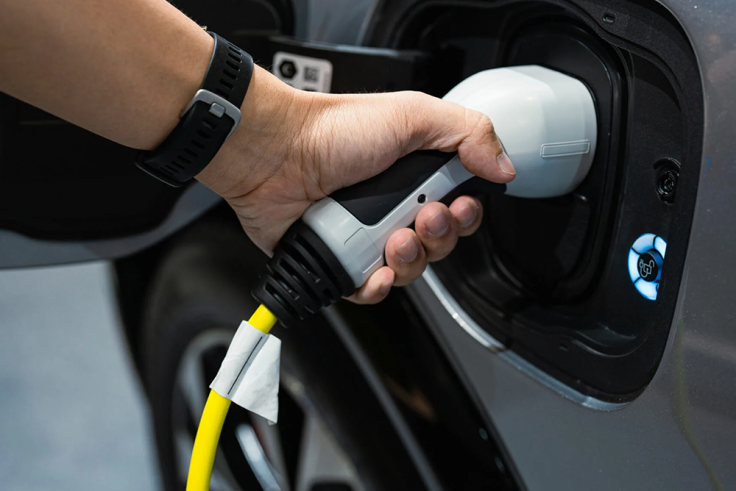Transportation
Transportation
Harvard experts are exploring planes, trains, and automobiles in their quest to innovate green travel, improve public transportation, and discover the future of getting from place to place.
Paving the way
Elaine Buckberg
As head of the new Driving Toward Seamless Public EV Charging initiative, Elaine is leading a team of researchers from Harvard and MIT in pursuit of improvements to electric vehicle infrastructure.
Ganesh Sitaraman
The Harvard Law alum argues in a new book that deregulating the airline industry has led to higher costs, less choice, and more misery for the flying public.
Pedro Farias
While an undergrad, Pedro won the Hoopes Prize for his work exploring public transportation’s role in saving lives and helping local businesses.
Welcome to Electric Avenue
As electric vehicles (EVs) have become more common, Harvard students and researchers have been monitoring their progress and exploring how they can help in the fight against climate change.

- Harvard Law School
What the US is getting right—and wrong—about the move to electric vehicles
What the US is getting right—and wrong—about the move to electric vehicles- Harvard Kennedy School
Banning gas-powered cars
California regulators passed rules banning the sale of new gas-powered cars by 2035, a victory in the fight against climate change.
- Harvard College
Can buying an EV actually increase your carbon footprint?
EVs are dirtier to build but cleaner to drive, and research shows they must meet certain mileage thresholds before environmental advantages are realized.
- Harvard Transportation Services
On the road to a fossil fuel-free future
In 2021, Harvard purchased four 100% electric buses and electric infrastructure as part of efforts to achieve fossil fuel-neutrality by 2026.
- Harvard School of Engineering
The sky's no longer the limit
Harvard alum Kyle Clark created a Vermont-based electric aerospace company that is innovating air travel and combating climate change.
Catch a ride
Public transportation services have evolved over time, with more options than ever before. The Harvard community is examining the benefits, the challenges, and the opportunities with public transportation.
Trains ????
In light of the recent history of MBTA line stoppages derailing commuter schedules, Harvard experts discuss solutions for problems in the long-term.
Buses ????
Studies have shown cognitive benefits among those who use public bus transportation, in addition to having better lives socially and physically.
Transit Fares ????️
With employees returning to the office, debates have sparked about offering free public transportation and its potential to bring in more commuters.
Highways and byways
Highways and railways connect communities across the globe. Experts explore ways to improve these crucial elements of our infrastructure, as well as how they impact us.
The assignment: Design a more equitable future
The assignment wasn’t simple, but it was relevant: Find ways to help communities around the country address racial injustice created by the nation’s biggest infrastructure project—the U.S. interstate highway system.
Stitching split communities together
Freeway systems often separate communities and neighborhoods. Efforts to reconnect them are underway via transportation, housing, and other methods.
Connecting countries and continents
While the role of the cross-country railroad networks in the U.S. may have diminished, the advantages of rail transportation clearly have not: another transcontinental railroad has bloomed across Europe and Asia.
Where is best to set up shop?
Gary Adamkiewicz from the Harvard Chan School found that homes, businesses, and schools near highways are more likely to be exposed to air pollution.
Considering the commute
Harvard researchers are exploring commuting’s effect on pollution, wellbeing, and municipal budgets to better understand how we can improve these twice daily trips.
Tomorrow’s transportation
Harvard’s Data Science Summer Program invited students from the U.S., Canada, and Mexico to learn how to teach toy cars to recognize objects and eventually drive themselves.
Learn more about the next generation of transportation scientists
Harvard alum and Business School assistant professor Julian De Freitas illuminates that autonomous cars require more than technology—they require ethical considerations and, most importantly, common sense.
A Harvard Design School project aimed to reimagine air travel for the future, recapturing some of its early promise (and even glamour) by assessing and addressing various pressure points resulting from the pandemic as well as more long-term challenges.
Jinyan Zang, a Harvard alum-turned-entrepreneur, has created a data platform that seeks to transform trucking logistics by connecting more empty return trips with cargo.
You may also like




